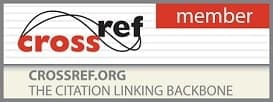Printed Journal | Refereed Journal | Peer Reviewed Journal
Peer Reviewed Journal
International Journal of Literacy and Education
2025, Vol. 5, Issue 2, Part B
Unlocking AI potential: A study on B.Ed. students’ preparedness for tech-driven teaching
Author(s): Maxwell Benjamin Balraj
Abstract: The rapid integration of Artificial Intelligence (AI) into education is reshaping teaching and learning practices, requiring future educators to be both technologically proficient and pedagogically adaptive. This study investigates the familiarity, preparedness, perceptions, and challenges faced by Bachelor of Education (B.Ed.) students in integrating AI-based learning platforms into their future teaching practices. Using a quantitative, descriptive survey design, data were collected from 55 pre-service teachers at Spicer Adventist University, Pune, through a structured questionnaire administered via Google Forms. Descriptive statistical analysis revealed that 85.45% of participants use AI tools, with the majority reporting perceived improvements in academic performance. While AI use was associated with increased confidence in learning, fewer students felt adequately prepared for classroom integration. Findings highlighted significant support for incorporating AI into teacher education, alongside strong concerns about overreliance potentially diminishing critical thinking and creativity. The lack of targeted training emerged as a key barrier, with over 85% of respondents emphasizing the need for professional development. The study recommends embedding AI literacy and ethical considerations into B.Ed. curricula, adopting blended learning approaches, and providing differentiated support based on demographic factors. These findings offer actionable insights for teacher education programs to equip future educators with the skills and critical awareness needed to leverage AI effectively and responsibly in educational contexts.
Pages: 152-156 | Views: 141 | Downloads: 12
Download Full Article: Click Here

How to cite this article:
Maxwell Benjamin Balraj. Unlocking AI potential: A study on B.Ed. students’ preparedness for tech-driven teaching. Int J Literacy Educ 2025;5(2):152-156.
Related Journal Subscription
Important Links
Featured Journal Subscription








